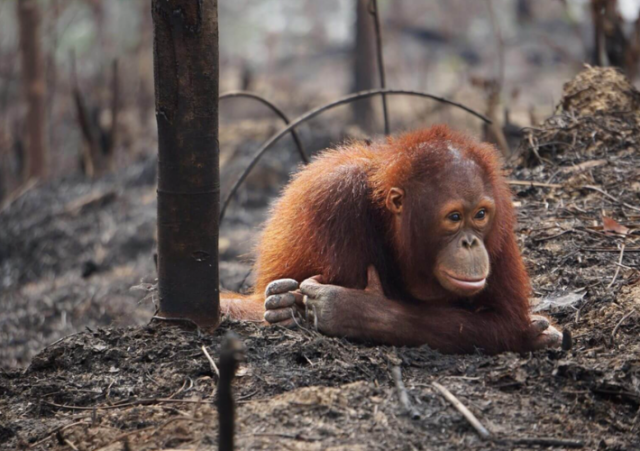Malaysia plans to introduce “orangutan diplomacy” in its relations with major palm oil-importing countries, offering the animals as trading gifts in an effort to allay concerns about the environmental effects of growing the commodity.
The orangutan diplomacy plan, likened to China’s “panda diplomacy” by the commodities minister, comes after the European Union approved a ban last year on imports of commodities linked to deforestation, which could hurt palm oil, used in everything from lipstick to pizza.
Malaysia, the world’s second-largest producer of palm oil after Indonesia, has said the law is discriminatory and aimed at protecting the EU’s oilseeds market.
As part of its diplomatic strategy, Malaysia will offer gifts of orangutans to trading partners, particularly major importers such as the EU, India and China, Plantations and Commodities Minister Johari Abdul Ghani said.
“This will prove to the global community that Malaysia is committed to biodiversity conservation,” Johari said on social media platform X late on Tuesday.
“Malaysia cannot take a defensive approach to the issue of palm oil,” he added. “Instead we need to show the countries of the world that Malaysia is a sustainable oil palm producer and is committed to protecting forests and environmental sustainability.”
No further details of the plan were immediately available. On its website, conservation group WWF says the species,
distinguished by its red fur, and a name that means “man of the forest” in Malay, is critically endangered, with a population of less than 105,000 on the island of Borneo.
Estimates by the WWF indicate the population of orangutans could fall to 47,000 by next year if immediate steps are not taken to protect the species. In that sense, the “orangutan diplomacy” plan may not resonate much with the wildlife preservation community. A major project is now underway in northern Borneo where nearly 600,000 acres of forest land has been set aside as a sanctuary for 3,400 of these animals.
Thirty eight years in journalism, widely travelled, history buff with a preference for Old Monk Rum. Current interest/focus spans China, Technology and Trade. Recent reads: Steven Colls Directorate S and Alexander Frater's Chasing the Monsoon. Netflix/Prime video junkie. Loves animal videos on Facebook. Reluctant tweeter.





